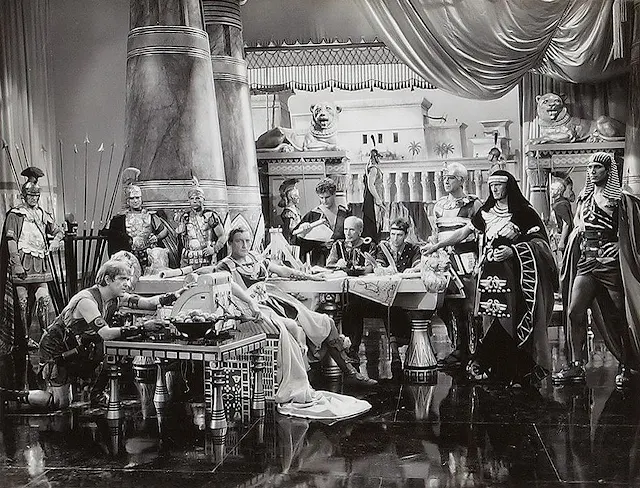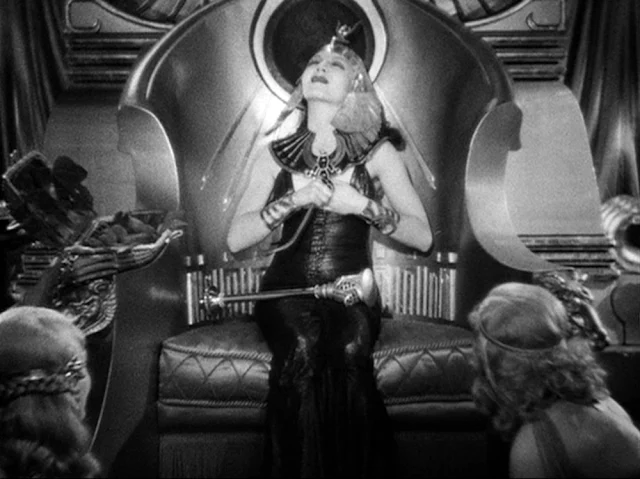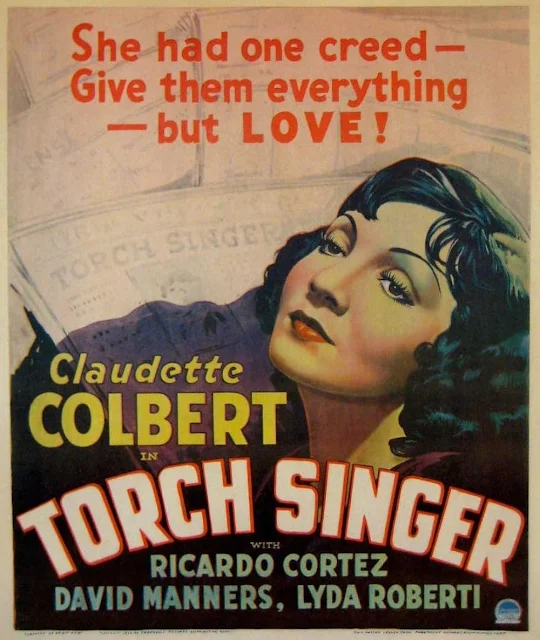Four Frightened People is a film that keeps running off in various directions: Sometimes it's an adventure thriller, sometimes a romantic drama, and sometimes it's a comedy of manners. It's as if Gilligan's Island suddenly turned in mid-season into a grim struggle for survival, and then went goofy all over again. A movie so muddled needs the help of strong casting, but instead it has four actors who look like they needed the work and this was the best they could find. As the nominal romantic leads, Claudette Colbert and Herbert Marshall have no chemistry, even after she stops being a mousy schoolteacher and starts slinking around in leopard-skin outfits, Mary Ann metamorphosed into Ginger. Marshall's chief rival for her attention, a macho adventurer played by William Gargan, is just a bullying grouch. And Mary Boland is there for comic relief as a feather-brained dowager clutching her lapdog to her breast, a shtick that gets so tiresome we need relief from the relief. It's the kind of movie that raises only one question: What the hell were they thinking when they made it?
A blog formerly known as Bookishness / By Charles Matthews
"Dazzled by so many and such marvelous inventions, the people of Macondo ... became indignant over the living images that the prosperous merchant Bruno Crespi projected in the theater with the lion-head ticket windows, for a character who had died and was buried in one film and for whose misfortune tears had been shed would reappear alive and transformed into an Arab in the next one. The audience, who had paid two cents apiece to share the difficulties of the actors, would not tolerate that outlandish fraud and they broke up the seats. The mayor, at the urging of Bruno Crespi, explained in a proclamation that the cinema was a machine of illusions that did not merit the emotional outbursts of the audience. With that discouraging explanation many ... decided not to return to the movies, considering that they already had too many troubles of their own to weep over the acted-out misfortunes of imaginary beings."--Gabriel García Márquez, One Hundred Years of Solitude
Search This Blog
Thursday, March 27, 2025
Four Frightened People (Cecil B. DeMille, 1934)
Thursday, February 27, 2025
Cleopatra (Cecil B. DeMille, 1934)
Claudette Colbert's Cleopatra arrives rolled up in a rug and meets her end by clasping a rather limp garden snake to her bosom, and in between there's a lot of posing and tin-eared dialogue superimposed on the story told by Plutarch and Shakespeare. It won't do, of course, except for the camp extravagance of Hollywood awash in Cecil B. DeMille's usual sin, sex, and sadism. If the 1963 version of the story had been this entertainingly vulgar, it might have made money.
Sunday, February 9, 2025
Torch Singer (Alexander Hall, George Somnes, 1933)
Cast: Claudette Colbert, Ricardo Cortez, David Manners, Lyda Roberti, Baby LeRoy, Charley Grapewin, Sam Godfrey, Florence Roberts, Virginia Hammond, Mildred Washington, Cora Sue Collins, Helen Jerome Eddy, Albert Conti, Ethel Griffies. Screenplay: Lenore J. Coffee, Lynn Starling, based on a story by Grace Perkins. Cinematography: Karl Struss. Costume design: Travis Banton. Film editing: Eda Warren. Music: Ralph Rainger.
Claudette Colbert displays a contralto singing voice athrob with vibrato in Torch Singer. She also runs the gamut from suffering unwed mother forced to put her infant daughter up for adoption to hard-bitten nightclub singer who sins her way to success. It's not a great performance either vocally or dramatically -- Colbert seems to be channeling Mae West's attitudes and mannerisms -- but it's fun to watch. The plot hinges on whether she will reunite not only with her daughter but also with the man who done her wrong. What do you think?
Tuesday, May 8, 2018
Bluebeard's Eighth Wife (Ernst Lubitsch, 1938)
 |
| David Niven, Gary Cooper, and Claudette Colbert in Bluebeard's Eighth Wife |
Michael Brandon: Gary Cooper
The Marquis De Loiselle: Edward Everett Horton
Albert De Regnier: David Niven
Aunt Hedwige: Elizabeth Patterson
M. Pepinard: Herman Bing
Kid Mulligan: Warren Hymer
Assistant Hotel Manager: Franklin Pangborn
Director: Ernst Lubitsch
Screenplay: Charles Brackett, Billy Wilder
Based on a play by Alfred Savoir and its English adaptation by Charlton Andrews
Cinematography: Leo Tover
Art direction: Hans Dreier, Robert Usher
Film editing: William Shea
Music: Werner R. Heymann, Friedrich Hollaender
Almost anything goes in screwball comedy, but why does Bluebeard's Eighth Wife feel just a tad off the mark? It has everything going for it: director, screenwriters, stars and supporting cast. But something seems to be missing. There are those who think Gary Cooper is miscast, but Cooper pulled off similar roles -- lovable eccentrics like Longfellow Deeds in Mr. Deeds Goes to Town (Frank Capra, 1936) and Bertram Potts in Ball of Fire (Howard Hawks, 1941) -- and director Ernst Lubitsch had established Cooper's gift for sophisticated comedy in Design for Living (1933). There is a certain lack of spark between Cooper and his costar, Claudette Colbert, but that's partly because their characters are not supposed to spark but rather flare. I think the fault lies mainly in the script, which springs Michael Brandon's many previous marriages on us as a surprise and never makes us feel that they're integral to his character. I suspect that the Production Code, which was administered with a heavy hand by Catholic laymen like Joseph I. Breen, blue-penciled so much of the humor surrounding Brandon's divorces that they no longer get the attention they deserve. Still, Cooper and Colbert et al. are fun to watch, and it may be that they are so much more fun to watch in other movies that Bluebeard's Eighth Wife simply suffers by comparison.
Monday, September 5, 2016
The Palm Beach Story (Preston Sturges, 1942)
Tuesday, February 16, 2016
It Happened One Night (Frank Capra, 1934)
 |
| Clark Gable and Claudette Colbert in It Happened One Night |


















.jpg)
